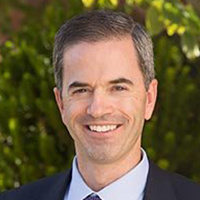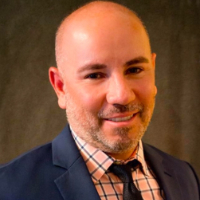 Mesa RICO Act Lawyers, Arizona
Mesa RICO Act Lawyers, Arizona
Sponsored Law Firm
-
 x
x

Click For More Info:
-
The Law Offices of Richard L. Cooper, P.A.
848 Brickell Avenue Suite 800 Miami, FL 33131» view mapDWI/DUI, Drug Trafficking, Felony Nationally Ranked Top 40 Under 40
With Richard L. Cooper you can expect a trusted confidant who will work diligently to fully understand your case and determine a road map to help you regain control of your life.
800-756-2781
Not enough matches for Mesa RICO Act lawyer.
Below are all Mesa Criminal lawyers.
Sponsored Lawyers
1-10 of 77 matches
Criminal
Elliot Briggs is a former prosecutor who knows the inside of the courtroom well. Mr. Briggs tried many cases as a prosecutor with the Maricopa County Attorney’s Office and in North Carolina for the Wilson District Attorney’s Office. Since his time at the County Prosecutor’s office, Mr. Briggs has dedicated his law practice to criminal defense, fighting for those accused of crimes. He has handled Thousands of criminal cases, from misdemeanor DUIs to serious felonies up to murder. Mr. Briggs earned a bachelor’s degree in political science from Southern Virginia University. Elliot was a member of the school’s legal forum and a member of the basketball team. He attended North Carolina Central University School of Law, where he graduated cum laude. A competitive nature and passion for law drives Mr. Briggs to achieve the best results in all his cases. Working always to defend his clients and fight for their rights, Elliot takes great pride in providing exceptional legal representation to Arizona residents. When he is not handling legal matters in court, Elliot enjoys spending his time on the basketball court. He also enjoys playing and watching other sports and spending time with his wife and 4 children.
(more)Criminal, Felony, White Collar Crime, Juvenile Law, Misdemeanor
Jeremy earned his undergraduate degree from the Marriott School of Management at Brigham Young University in 1998. He then attended Pepperdine University and graduated from the Graziadio School of Business Management in 2001 and from Pepperdine University Law School in 2002. In 2003, Jeremy received a Certificate of Dispute Resolution from the Straus Institute for Dispute Resolution at Pepperdine University. Legal Experience Jeremy is a member of the Arizona State Bar Association and has served as secretary for the Dispute Resolution Section. He is also a member of the American Association of Premier DUI Attorneys and the National Association of Distinguished Counsel. He was also named a Super Lawyer in Arizona. Jeremy’s Criminal Defense practice helps clients facing charges like criminal speeding, possession of marijuana, DUI, domestic violence, and more. You can learn more about his DUI services at MesaDUIAttorneys.com.
(more)Education, Personal Injury, Federal Appellate Practice, Criminal, Health Care
Divorce & Family Law, Bankruptcy & Debt, Criminal, Accident & Injury
Alison Briggs is very knowledgeable and efficient. She really cares about her clients needs. No situation is ever too difficult for her to handle. Miss Briggs offers appointments that will fit around your schedule, and will accommodate you wherever she can. Attorney Alison Briggs is an Arizona Bar Licensed attorney in Good Standing practicing law throughout Arizona. Alison, a Massachusetts native, grew up on the East Coast. She received a Bachelor degree from the University of Massachusetts Amherst. Alison went on receive a Masters in Social Work from Salem State university in Salem, Massachusetts. Alison is a Licensed Certified Social Worker. In her spare time,
(more)Criminal, Felony, Traffic
Manny A. Jacobo is a native of Arizona. He attended the University of Arizona for his undergraduate education and received a Bachelor of Arts Degree in Political Science. Manny then attended California Western School of Law in San Diego, California where he earned his Juris Doctorate. Following law school, Manny accepted a position as an Assistant City Prosecutor at the Chandler City Prosecutor’s Office where he served for seven years. As a prosecutor, Manny handled countless DUI cases, Domestic Violence offenses, and misdemeanor violations of Arizona statutes and city ordinances. He then became a Deputy Public Defender at the Pinal County Public Defender’s Office, serving in this capacity for three years. As a public defender, Manny had a felony case load that included high level complex felonies and a high volume justice court dealing with misdemeanor DUI’s and Domestic Violence offenses. Manny then became an Associate Attorney at a downtown Phoenix law firm, where he practiced criminal and family law and learned how to run and manage a private law firm. Throughout his career, Manny has handled countless cases, from misdemeanors to felony trials. As a former prosecutor, he is familiar with prosecutor tactics and utilizes this knowledge in the defense of your case. He has extensive trial experience in a wide range of cases. Manny is also fluent in Spanish.
(more)Criminal, Family Law, Felony
Kaitlin Simone DiMaggio is a graduate of the Sandra Day O'Connor College of Law. She went to law school so she could represent a close family member after he was unjustly sentenced to life in prison without the chance of parole. Her involvement in his case drives her passion to help others who are enmeshed in the legal system. During her time in law school, Kaitlin worked over 350 hours of pro bono service working on the post-conviction cases of men and women who experienced a manifest injustice or who claimed innocence. She also holds a Master of Counseling degree from Arizona State University, and maintains her license to practice therapy. Before earning her law degree, Kaitlin earned a master's degree in counseling and she practiced as a licensed therapist. She worked at a court-mandated counseling agency running group and individual therapy sessions for those convicted of domestic violence and drug-related offenses, later becoming the Clinical Supervisor of an offender treatment program and a Program Manager for a government contract. Kaitlin is an advocate for criminal justice reform and is passionate about helping clients who are enmeshed in the legal system. Kaitlin has experience working on criminal cases involving domestic violence, sex-related offenses, DUI’s, and more. Additionally, she has worked on numerous post-conviction cases and parole hearings. Simone is also a zealous advocate for clients in family court, and has worked on cases involving custody disputes, divorce, and child support. Kaitlin is admitted to practice law by the State Bar of Arizona. She is a member of the American Bar Association, the Arizona Attorneys for Criminal Justice, the Criminal Justice Reform Team of the Arizona Faith Network, and the Healthy Families Arizona Advisory Board.
(more)Divorce & Family Law, Administrative Law, Criminal, Child Custody
Marc graduated Suma Cum Laude from Arizona Summit Law School where he was awarded CALI Excellence for the Future awards in Family Law, Constitutional Law, Property Law, Tort Law, and Antitrust Law. He is most comfortable in the courtroom, acting as an unyielding advocate for his clients. Outside court, Marc prides himself on being to provide direct and knowledgeable advice to his clients, especially in legally and factually complex matters, so that they are able to make informed decisions about their case and appropriately weigh their options. However, when Marc isn’t busy eviscerating an opposing party on cross-examination or planning his strategy from the trenches, he is enjoying an otherwise calm life with his wife and two children.
(more)Criminal, Accident & Injury, Personal Injury
Matt Maerowitz grew up in Arizona and went to high school at Brophy. He received his undergraduate degree in economics from Boston College and later graduated from law school at the University of Arizona. Matt Maerowitz is an experienced trial attorney with a practice focused on DUI, criminal defense, and personal injury cases. Matt has successfully represented clients in numerous bench and jury trials over the past eight years. Before co-founding The Maerowitz Law Firm, LLC, Matt worked for a Scottsdale law firm where he drafted pleadings and criminal defense motions, primarily in DUI cases. Matt also worked for the Pima County Attorney’s Office as a student-prosecutor during law school. Matt’s experience with both sides of criminal law cases has helped him anticipate arguments from the prosecution in order to prepare the best defense for his clients. During law school, Matt Maerowitz was recognized for several accomplishments. He was recognized for his excellent oral advocacy skills as a member of the University of Arizona’s ABA National Appellate Advocacy Competition Team. Matt was also a Managing Editor for the Arizona Journal of International and Comparative Law.
(more)Criminal, Personal Injury, Car Accident, Motorcycle Accident, Wrongful Death
R.J. Suzuki is licensed to practice law in the State of Arizona and the United States District Court. Fluent in Spanish, Mr. Suzuki is a member of Los Abogados, the Arizona Hispanic Bar Association, and the State Bar of Arizona. He was a former Trustee on the Maricopa County Bar Foundation. Upon graduation from the University of Arizona College of Law, in 2000, Mr. Suzuki was selected to serve as law clerk to the Honorable Howard Fell of the Arizona Superior Court in Pima County, who was assigned to the court's criminal calendar. Mr. Suzuki next accepted appointment as prosecutor in the Office of the Maricopa County Attorneys Office. During the next three years, as Deputy Maricopa County Attorney, Mr. Suzuki investigated and litigated felony matters as part of the Major Crimes Gang and Repeat Offender Program Bureau. From the Maricopa County Attorney's Office, Mr. Suzuki accepted a position as Assistant United States Attorney for the District of Arizona. In his nearly two years prosecuting federal crimes, Mr. Suzuki was responsible for the resolution of numerous federal felony and misdemeanor cases in Tucson and Phoenix. Mr. Suzuki primary focus is in criminal defense in City, State and Federal Courts. Mr. Suzuki provides aggressive and professional representation for his clients.
(more)Criminal, DUI-DWI
Joshua A. Lopez, Esq. is an attorney serving Arizona, California, and Nevada. Joshua practices criminal defense and personal injury. Joshua is dedicated to fighting for his clients while providing personal service that exceeds expectations. Before starting his practice, Joshua worked with various private and public law firms where he was exposed to many different areas of law. Joshua is very familiar with the stress and anxiety the legal process puts on people fighting a case. That is why Joshua personally handles all his cases and provides his contact information to clients on day one. Joshua attended California Western School of Law. Joshua’s hard work earned him the Academic Excellence Award in Evidence, one of the hardest classes in law school, for having the highest grade in the class out of 118 students. Joshua graduated cum laude in 2016. Before law school, Joshua attended the University of Nevada Las Vegas and earned his Bachelor’s degree in entrepreneurship. Joshua enjoys playing soccer, snowboarding, and hanging out with his wife and dog in his spare time.
(more)



 Richard L. Cooper Miami, FL
Richard L. Cooper Miami, FL AboutMiami Attorney at Law
AboutMiami Attorney at Law ServicesCriminal Defense
ServicesCriminal Defense










